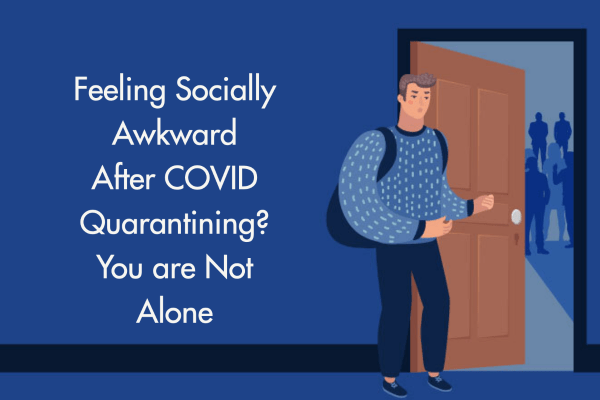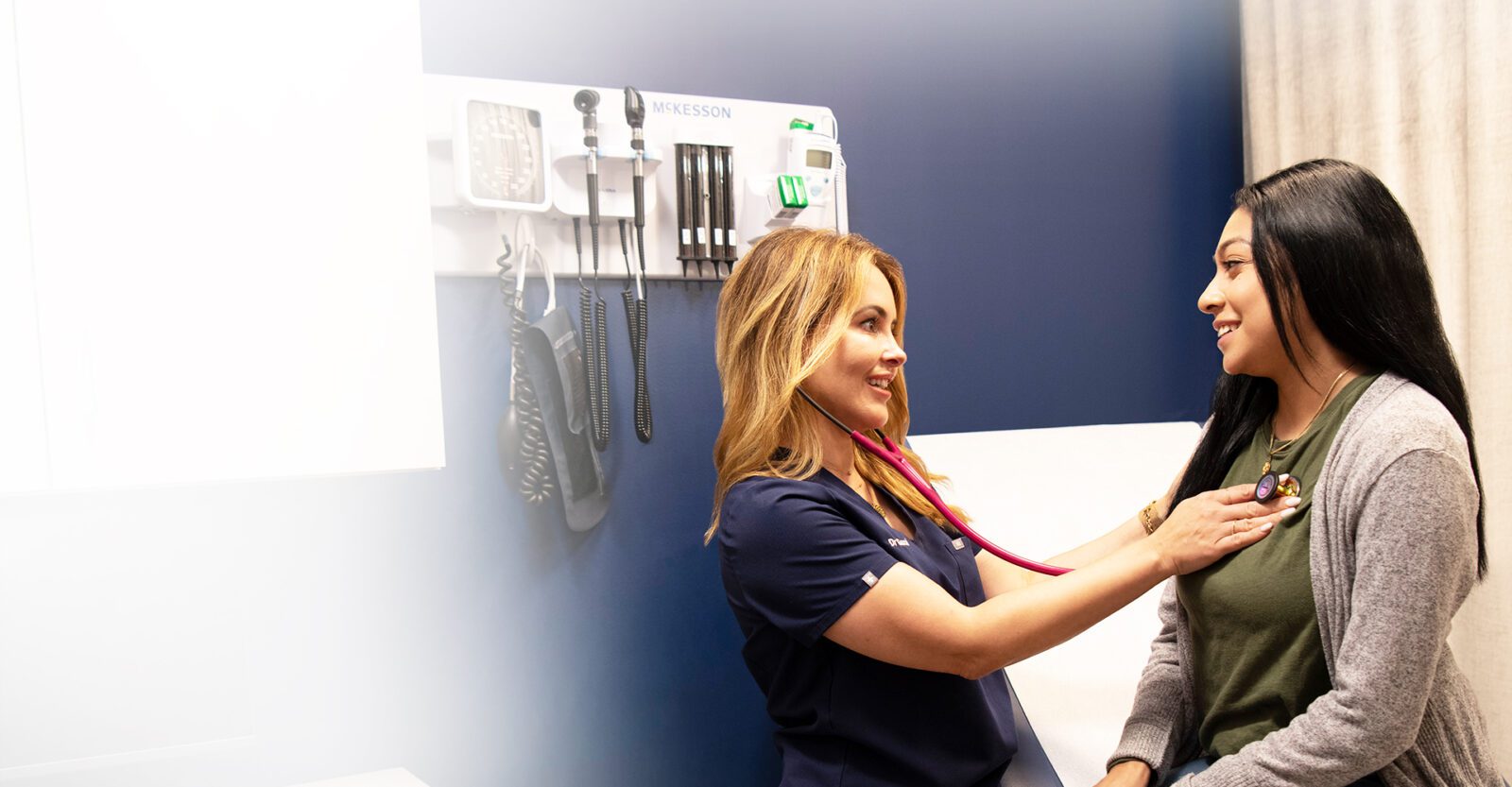Feeling Socially Awkward After COVID Quarantining? You are Not Alone


COVID-19 changed our lives in radical and unexpected ways. Most people went from busy, bustling schedules to a much slower pace. We opted to Zoom friends and family versus meeting in person. We skipped hugs and waved from a distance instead. Holidays and special occasions were put on hold or done online. Working from home became the norm, and some people were almost completely isolated from others. After more than a year of COVID restrictions, will a return to our “old lives” be possible? Yes, but as with many aspects of human behavior, people’s adaptability will vary. Some will recognize the new environment and adapt, while others will refuse or lack the resources to do so effectively. You may face some of these common struggles as you emerge from your COVID lifestyle and adapt to your new environment.
You May Feel Socially Awkward
Restrictions have been eased, vaccines are being administered and the world around you is beginning to look and feel more normal. Still, you may be hesitant to say “yes” to the birthday party your friend is throwing, or the night out that you so desperately need. When you do go, you find yourself feeling socially awkward. Do you give a handshake, fist pump, or hug to say hello? Are you standing too close to others? Why is everyone unmasked? It is normal to have these feelings. Everything you have done for 14 months will feel like it’s suddenly being tossed out the window. It will take time to feel comfortable in large groups again. This is all normal, take your time and don’t dive in all at once. Start by seeing a core group of family and friends that you have missed the most and branch out from there. Soon you will feel more comfortable resuming other activities, too.
You May Require a Bit More Personal Space
After staying socially distanced for more than a year, close talkers and friends who go in for a hug instead of simply saying hello may test your limits. It’s okay to need some personal space. Don’t be afraid to set boundaries and lead the way. Vocalize when you are feeling uncomfortable and give yourself some distance. In time, all will seem normal again.
You May Need More Me Time
Staying home for the bulk of 2020 allowed many people to enjoy “me time” they simply didn’t have enough of pre-pandemic. As things resume, do not overbook your schedule. Save some sacred “me time” so you can continue to have time for yourself. Whether you reflect and meditate, read a book, exercise or simply unwind, enjoy it. Overscheduled lives lead to unnecessary anxiety and stress, which puts a strain on your mental and physical health.
You May Be More Selective with Your Time
COVID provided an acceptable excuse to get out of almost anything. Even if you felt an event or activity MIGHT be safe, you could always say “Sorry, I can’t because of COVID” and it was okay. COVID also provided an opportunity to prioritize your activities, your obligations, and even your friends. Many people will be more selective coming out of COVID. They’ll realize the joy of saying “no” so you can have more time with your family, or even more time to yourself. Others will have learned which friendships mean the most to them and will reserve time for only those relationships moving forward.
You May Be More Anxious
COVID was a scary time for many people, especially in the early months. Our schedules completely changed and almost everything was done from home. It’s normal to feel anxious as these things go back to the way they once were. While it may be a very welcome change, it is still change, and change can cause us to feel anxious and uncertain. If you are feeling this way, know you are not alone. The pandemic changed all of us. Consider talking with a therapist as you adjust to life post-pandemic. Therapy is an effective way to work through changes in life, be it COVID or something else entirely.
If you feel any of the above, know you are not alone. According to the CDC, the percentage of adults with symptoms of anxiety or depressive disorder increased from 36.4% to 41.5%, and the percentage of those reporting an unmet mental health care need increased from 9.2% to 11.7% from August 2020 to February 2021.
The COVID-19 pandemic caught the world by surprise and turned things upside down. It caused fear, anxiety and sadness for many people. Most of all, it wasn’t short-lived. The impact of physical distancing and stay-at-home orders will stay with us for a little longer and it will take time for people to feel comfortable being in large groups again. Give yourself time, space and talk to someone if you are struggling.
Innovative Therapy, part of Innovative Care, has five dedicated therapists on our team.
Visit us online to learn more about our services, or email us to schedule an appointment.
